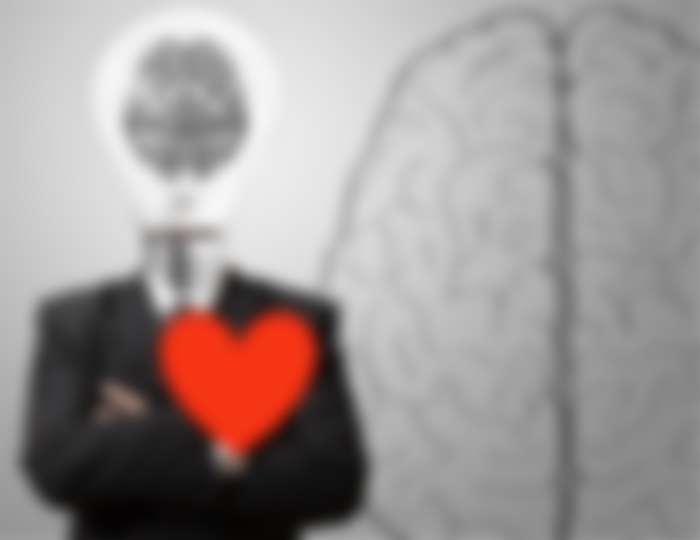Confidence and stability stand on the one hand, and excitement and pleasure on the other. They are night and day, black and white, bitter and sweet; it has its own flavors and charms in two opposite extremes. Stability and excitement are also sources of conflict. For example, you want to stay healthy – and therefore live a safe, stable life – by eating a simple and regular diet; but at the same time, eating and drinking without restriction gives you pleasure and excitement. Bulgur is available at home, but the rice in the market continues to attract. Which should you do? It's like being pulled from either side of you to two different sides...

No matter how 'good' backgammon players we are; Our next move depends on future dice—which we can't quite predict. While a hand is in a different state before, we can go into a very different state depending on the state of the rolled dice. Another example can be compared to the choice preferences of a surfer who jumps from one wave to another to create more excitement. While sliding on a smooth and defined wave, it is a human behavior in the last analysis to leave it and move on to another. Our life passes between desires, pleasures and excitements and confidence, determination and sustainability.
Limited Resources
Our life is limited in terms of health, time and financial resources. We cannot satisfy all our seemingly endless wants at the same time. But nurturing our human hunger and imagining a simpler life is not easy either. Even the simplest life continues to experience the contradiction between confidence-stability and excitement-pleasure that I have described above. Some fundamental elements of philosophy and psychology stem from this bitter conflict.
One aspect of the conflict is reflected in the conflicting benefits between the short run and the long run. It happens when we give up not only the benefit itself, but also individual principles and policies in order to obtain a benefit. Sometimes we try to bend some rules that we thought were strict in the past. Over time, conflicts and contradictions soften and seem to be resolved. We forget about the difficulties, tensions and conflicts that we have experienced within ourselves in the past. The essence of a saying like “time heals everything” is our habit of softening conflicts and contradictions with time.

Indecision and Decision
Remember a time when you struggled to make a decision in bed at night. Many things go through your mind. Eventually, you force yourself to make a decision and fall asleep. But falling asleep is not the same as resolving conflict. In your sleep, the mind continues to work intensively to resolve the conflict. When you wake up in the morning, a new decision has been made. It is still unclear how permanent and sustainable this decision is. On the other hand, indecision is the worst decision. Just as high fever or above-normal blood pressure hollows out the body, indecision also exhausts people emotionally and mentally – even physically.
If we are not well-versed in analytical thinking techniques and tools, or if we have poor problem-solving performance, our decisions are largely based on our past memories, prejudices, and emotionality. This inexperience is the reason why some people look for decisions in coffee fortunes or the like. Those who have trained themselves in correct analytical thinking first put forward the criteria that form the basis of the decision. They then give them priority and weight points. They come to a decision by evaluating these criteria according to priority and weight. But probably this rational decision also conflicts with other emotionally based options that will produce pleasure and excitement. Having made a rational decision still does not rule out other emotional, even irrational, choices based on excitement, pleasure, and fear. Those choices continue to smile at us even in the most challenging situations. After all; we decide wisely, but we prefer it emotionally.
Mind and Emotion

People around us expect us to make smart choices. The social acceptance rate of being rational is high. In public, smart choice is often associated with what is considered positive, such as brain, intelligence, knowledge, experience, or conformity with self-interest. A strong argument is needed to explain and defend our bias towards what we choose, using our rote, prejudices, or rational (rational) criteria. Here mostly things like emotion and heart grow up to help. When we put emotion against reason, we think we have a powerful tool of struggle.
Are there really two different forces, mind and emotion, that struggle within ourselves? Could the conflict we experience as trust-stability and pleasure-excitement be caused by two different forces within us? Is this severe strain a reflection of the conflict between these two forces? Today, the branches of science and discipline that examine the human brain and its manifestations show that this conflict is actually a struggle of man with himself to seize the decision mechanism. During the struggle, the body controlled by the brain produces two different scenarios under the heading of mind and emotion in order to seize the process that will produce the decision and reflect it to the outside world. Sometimes one of the scenarios is screened, at another time the other.
Rational Behavior
Starting from ancient times, a mapping is made between philosophy and rational human behavior. For example, the main axis of the moral philosophy called ethics (as a manager or as a citizen) is built on the rational and correct decisions of people. The reason for irrational decisions was characterized as weakness of will, human devotion, lack of self-control or haste. On the other hand, the essence of literature and other arts is largely derived from emotional choices and coincidences that leave the mind out. Wrong or right, right or wrong; Without this dual distinction, many oral and written cultural accumulations from the past to the present would probably not exist.

Let's go back to rational decision and behavior. We must have criteria and principles to make a decision and make a choice based on it. (Should there be?) Each of these criteria should include priorities and weights to form the decision and choice. There should be an evaluation system (formula) that will transform many criteria into a single decision and selection. When we make a choice in accordance with the decision obtained as a result of the evaluation, we act rationally (or we are considered to act).
Changing Memorization
The existence of one's principles and criteria and the claim that they are immutable are two different things. First, we can forget. This is a normal feature of the human brain and memory. There are those who change or get lost between the information we have learned and the experiences we have gained and our values, principles and criteria. The decisions and choices we reach because of our social, economic or cultural status or other interests cause some of our criteria to be removed from the agenda. To put it briefly; we change.

Change is an inevitable feature of the universe and human beings that we feel and live in. Changing criteria, on the other hand, may cause a decision and choice that seemed rational before to be considered rational no longer. This is one of the reasons why we act differently today than in the past or have regrets about yesterday. The parable we can deduce from this is that our values, principles and criteria are not things that need to be memorized and become the stuff of our prejudices; Just as we manage to ask questions about our lives, we also have to know how to question them.
Let me end with an inference from what I said above. Do not be tempted by your baseless desires, memorizations and prejudices, which are formed due to illusion. Do not deceive yourself by making excuses for them. Irrational (irrational) madness must also have a logic.





Hi. I think the opening line is a bit misplaced imho. Confidence has no relation with excitement and pleasure. There is no direct comparison between the two. You can also draw the inference from the example you have used yourself. Confidence is being certain of your abilities or your trust in others and stability refers to a resistance to change. Being excited is reactive which can be used with stability. Don't you think so. Otherwise a well written article.